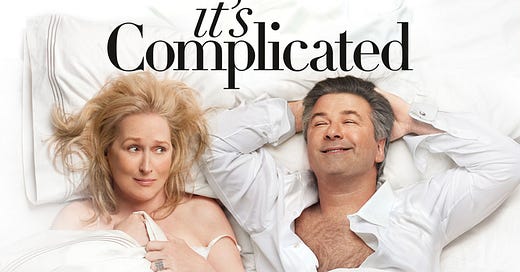What's the Deal with Compounding? It's Complicated... 😂
And always great when we can use a Nancy Meyers film as a teaching aid!
This week's newsletter is brought to you by our friends at Winona, FDA-approved, doctor-prescribed menopause care for women, backed by science, and shipped directly to your door.
Keep reading with a 7-day free trial
Subscribe to THE EMPRESS to keep reading this post and get 7 days of free access to the full post archives.




